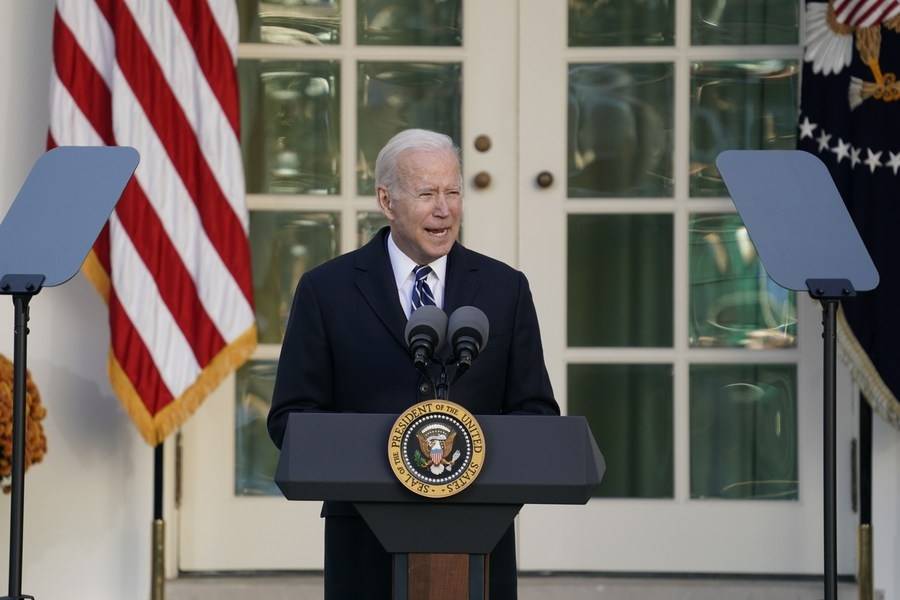The White House estimates that the proposed tax, which focuses on taxing unrealised capital gains, would raise around $360 billion in revenue over the next decade….reports Asian Lite News
US President Joe Biden has proposed a new 20 per cent minimum tax on the the wealthiest, vowing to fix the tax code to ensure corporations and rich people “pay their fair share”.
“This minimum tax would apply only to the wealthiest 0.01 per cent of households, those with more than $100 million, and over half the revenue would come from billionaires alone,” Xinhua news agency quoted a White House fact sheet on Biden’s budget for Fiscal Year 2023 as saying on Monday.
The White House estimates that the proposed tax, which focuses on taxing unrealised capital gains, would raise around $360 billion in revenue over the next decade.
The newly released White House budget plan also proposed to raise the corporate tax rate to 28 per cent, up from the current 21 per cent, attempting to partially reverse the tax cuts under the former Donald Trump administration.
In late 2017, the Republican-controlled Congress passed a Trump-advocated tax reform bill, which slashed the corporate income tax from 35 per cent to 21 per cent.
“Corporations received an enormous tax break in 2017. While their profits have soared, their investment in our economy did not: the tax breaks did not trickle down to workers or consumers,” the White House said.
Republican lawmakers, and even “moderate” Democrats Joe Manchin and Kyrsten Sinema have previously opposed to tax increases, and the newly proposed billionaire tax is expected to face obstacles in Congress.
Overall, the budget plan reduces deficits by more than $1 trillion over the next 10 years, according to the White House.
Noting that “a greater emphasis on deficit reduction would be a welcome change”, Maya MacGuineas, president of the Committee for a Responsible Federal Budget, a budget watchdog group, said it’s “not nearly enough”.
“Unfortunately, this budget leaves debt on an unsustainable path, and lacks important details on how it would structure the core of its agenda or address provisions scheduled to expire,” MacGuineas said in a statement, adding that even taking the budget at its word, “debt would rise to a new record by the end of the decade”.
“It’s time to reverse course and put the debt on a downward sustainable path by paying for new priorities, reducing wasteful spending, lowering health care costs, restoring trust fund solvency, and increasing revenue.”

Leave a Reply